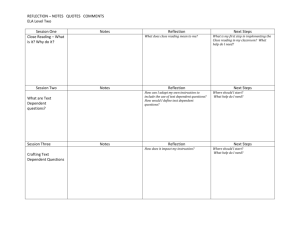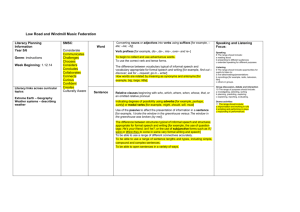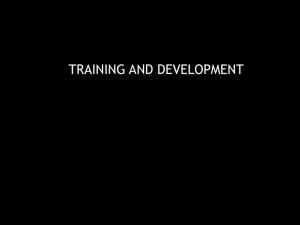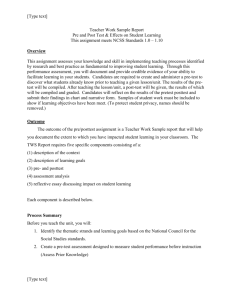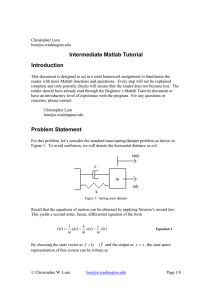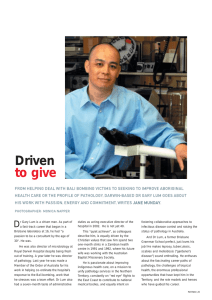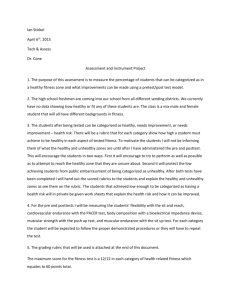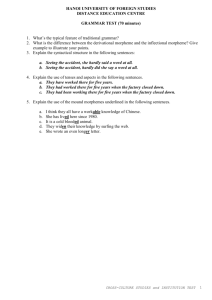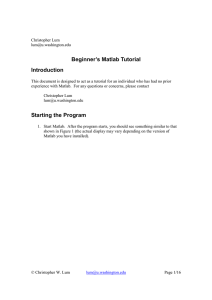File - Shalondria Turk
advertisement
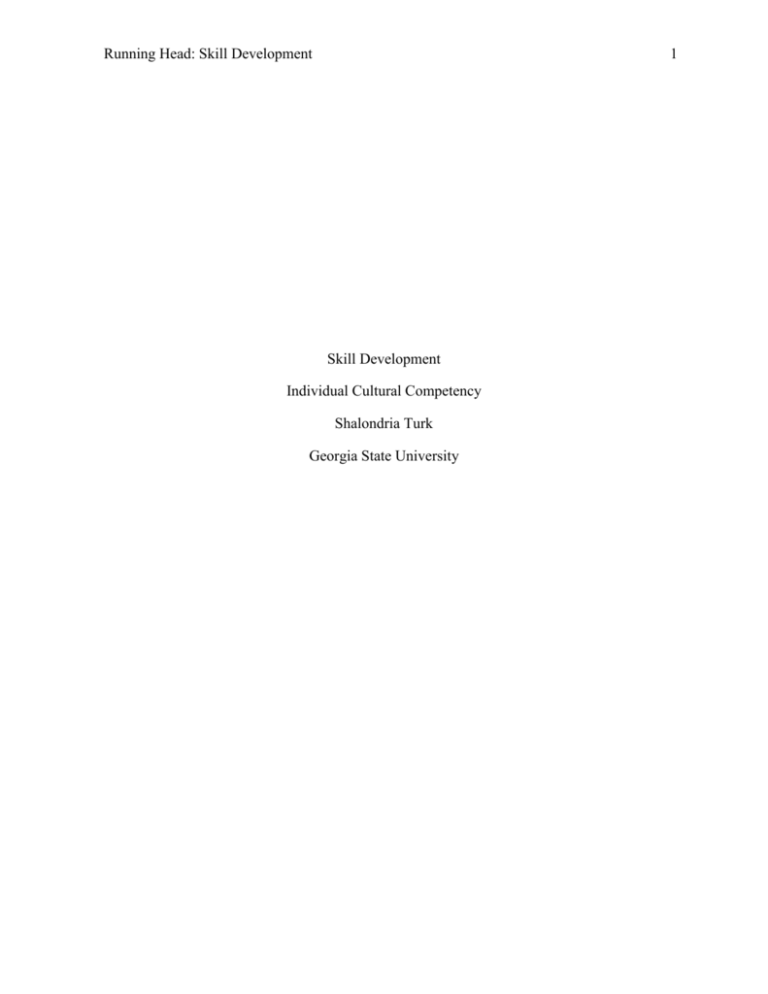
Running Head: Skill Development 1 Skill Development Individual Cultural Competency Shalondria Turk Georgia State University Skill Development 2 Cultural Competency Action Plan Lum lists The NASW Standards for Cultural Competence in Social Work Practice (Lum, 2011). I will explain just how I have developed or intend to develop these standards. These standards include Standard 1 Ethic and Values, which is used in my present work. I often have to shred materials containing sensitive information pertaining to clients in our programs. When emailing a case manager or program director regarding a client it is important to identify the client using first initial, last name. Standard 2, Self-Awareness, was developed this semester when we completed a cultural biography to gain self-awareness. Standard 3, Cross-Culture Knowledge, was developed in this course. As a class we constructed group projects to teach each other the history and identities of cultures that we were unfamiliar with such as Muslims, Latino Americans, Persons with Disabilities and much more. Standard 4, Cross-Culture Skills, were used when interviewing clients during the cultural immersions portion of our individual projects. Standard 5, Service Delivery, is another piece that I use in my present work. People who call the agency I work for tend to hear my voice first. It is important that I not only represent the agency’s professionalism, but also recognize that all people don not digest information the same. It is my job to explain our services to them in a manner that is compatible. Standard 6, Empowerment and Advocacy, has yet to be developed. I have an idea that in the future, I will be ensuring that as a facilitator for the client, I will help the individual to recognize their power and abilities and bypass barriers. This will all be done in a collaborative fashion, without imposing values of my own. Standard 7, Diverse Workforce, is also something that I have experienced. The agency that I work for has a cultural competence plan in place and is practiced daily. This agency values and respects the diversity of our communities, as do I. Diversity enriches our lives and the lives of our clients. Standard 8, Professional Education, is something that I have always participated in. In addition to attending Georgia State University to study social work, I Skill Development 2 have also attended trainings when it’s applicable. Just recently, I attended an agency-wide Crisis Prevention & Intervention Training. There may come a time when providing individual services that a client’s non-verbal and verbal attitudes may develop into a violent situation. In this training, I learned how to address these attitudes without compromising my health, the client’s, and my social work license. Standard 9, Language Diversity, is something that I practice daily in my field. One example of Language Diversity would be the interviews that I conducted during the Cultural Immersion. I wanted to be sure and ask the right questions, but it was also important that I asked in ways that the client would understand. I found some of the wording I chose went over their heads. For example, words such as oppression seem to stump them. I instantly had to reconfigure some questions right in front of them. It made a huge difference once I made those changes, and they were able to provide all or more the information for me; as a result. Standard 10, Cross-Cultural Leadership, is a skill that has been developed during this semester. We researched populations of diverse cultures and shared them with our fellow classmates. As students, we have in a way advocated for these different groups and it has resulted in enhancing our knowledge of these populations. Social Action Plan The group in which I would ally is homeless women with children. I would develop an agency that intends specifically to address the financial state of these women, and better their homeless situation by providing permanent housing and supportive services. Most services provided to these women and children would be executed primarily by case management. Case managers will work with clients on an individual basis to address specific needs that may arise. They will develop a plan that would reflect on their growth and challenges they face. This plan will be revisited and frequently updated throughout their stay in the program. The overall goal is to support these women and children and to help stabilize their living situation. This program Skill Development 2 will provide financial wellness training to empower these clients to overcome obstacles and gain a level of independence. The program and its case managers are responsible for providing case management services to the women and children. These services are focused on stabilization and the immediate needs of the women and children. To ensure greater probability self-sufficiency, I would partner with people within the community to individually assist them in opening banks accounts, developing personal budgets and building credit. These supportive services in addition to things such as life skills and financial wellness trainings are necessary to break the cycle of poverty and dependence. Post Reflection Experience During my Pretest reflection, I found that certain life events contributed to my view of other populations. As a result of the information received and cultural immersion experiences that I have partaken in my scores changed a lot in my posttest reflection. This has been an eyeopening experience for me. I have an enhanced understanding that a person’s cultural identity can vastly impact every aspect of their lives. A skilled social work professional recognizes how culture influences the expectations and behavior on the part of the provider and the individual served. I am proud to say that I have become more competent and mindful of people in general. I now know that we cannot approach each person in the same manner across the board. There are specific adjustments that will need to be made to serve an individual of the population. As I stated in my pretest and posttest reflection, it is vital that we take a variety of factors into consideration. A person’s ethnicity, gender, age, socioeconomic status, religion, physical capability, even their migration history so that they receive the proper care, attention, and quality of service are to be taken into consideration. I will treat individuals with respect and expresses a genuine interest, keeps an open mind, asks questions and always be willing to learn. Skill Development Reference: Lum, D. (2011). Human Rights and Social and Economic Justice. In Culturally Competent Practice (4th ed.,p.28-29). Belmont: Brooks/Cole. 2



